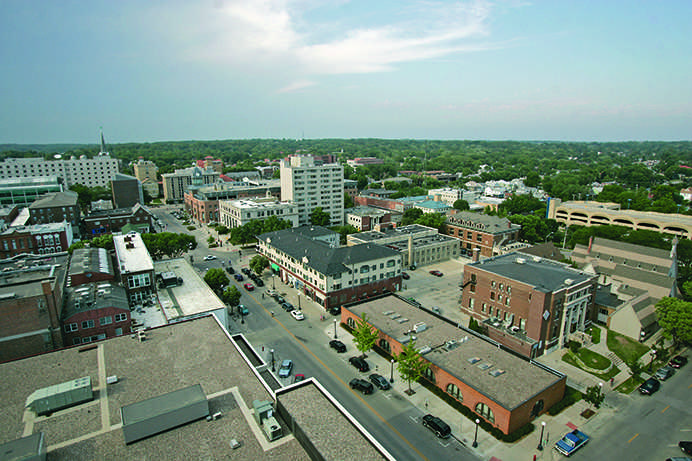A community organization is finding new ways to fight a culture of catcalling.
Members of the group End Street Harassment Iowa City have developed an interactive Google Map on which users can pinpoint and leave descriptions on specific locations where they experienced street harassment.
The group held a meeting at Fair Grounds Coffee on Thursday evening to plan upcoming events to raise awareness about the issue during April.
According to the national organization Stop Street Harassment, the occurrence can be defined as unwanted comments, gestures, and actions forced on strangers in public places without their consent. It is directed at them because of their actual or perceived sex, gender, gender expression, or sexual orientation.
Stella Hart, the lead organizer of End Street Harassment, said she believes the issue is especially prevalent in the area.
“I’ve lived in Iowa City for about four years now,” she said. “People walk in Iowa City, it’s a really nice place to walk around, but that also brings a lot of unwanted harassment.”
Hart said she’s experienced it just by riding her bike downtown, and many of her friends have received unwanted attention as well.
“Basically, everyone I’ve spoken with, whether they are a student, professional, or community member, has some horrifying story or a bad experience being harassed,” she said.
Hart and group member Corey Stone started an Iowa City street harassment map back in January. It is available for anyone to contribute to on the group’s Facebook page. During International Anti-Street Harassment Week in April, the group plans on going around town and putting up interactive posters at the actual locations.
“The poster will unfold and have a description of what happened,” Stone said. “If people are able to see a bunch of examples of street harassment that have happened around them, they will begin to see that it isn’t an isolated incident.”
Stone said that he’s been surprised to see some resistance to the map.
“People don’t take it seriously enough,” he said. “The map has been tampered with, there’s this kind of backlash against trying to do something against street harassment. They don’t realize how widespread it is. They don’t realize how unsafe it can make people feel, so they’re dismissive.”
RELATED: Updates in technology intensify campus stalking
Keegan O’Malley of End Street Harassment is planning a music festival and a bystander-intervention training session, which will be on April 11 at Public Space One from 6 to 10 p.m. O’Malley said he’s seen women in the community heavily affected by harassment.
“It’s changing your route, it’s someone saying something and setting you off for the rest of the day, this is post-traumatic stress,” O’Malley said. “I think its been conditioned into a lot of people in our community.”
Hart said the group has seen a lot of success in the past by doing “Chalk the Walk” events.
“They’re so much fun,” she said. “You just pick a city block and cover it with messages protesting street harassment.”
Hart said she has been concerned about activists being harassed themselves, but so far she’s seen positive reactions from the community.
“People will walk by and they’ll be like, ‘Yeah, I can relate to this, this happened to me,’ and they’ll take a piece of chalk and write their own message,” she said.



